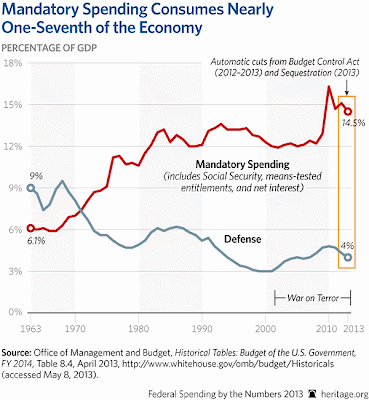I addressed the charge that since World War II America doesn’t win wars. I think we are too strict when evaluating our wars and too generous when evaluating our enemies at war.
But that’s not the entire story. We simply don’t need to clearly win every war on the battlefield if the war is really defending the global system America established after World War II:
The Security Council - the five permanent members of which are China, France, Russia, the UK and the US - has long been criticised for representing the realities that prevailed at the end of World War Two[.]
Thanks Captain Obvious.
Within that framework, the smaller wars we’ve waged since 1945 are battles or campaigns in an effort to defend the existing system. Countries can choose to prosper within that system or challenge it. Or like China, both.
This changes how we evaluate America’s record, no?
The United States set up the United Nations. The two wars that the UN actually authorized to defend the system the UN represents were famously inconclusive. South Korea was defended but awful North Korea endured. And Kuwait was liberated but its would be conqueror, awful Iraq, endured.
That’s not a coincidence.
After World War II our troops and influence were in the Western Pacific and the fringes of eastern Asia; and in Western Europe. Our forward defenses were in place with local allies to prevent enemies from crossing an ocean to descend on America’s coasts.
With trade set up to bolster our economy and allies, our objective was to hold what we had gained from World War II. Gaining more was more risk than it was worth. So when the status quo was upset in Korea and Kuwait, the UN was willing to reverse the aggression but not expend the resources to achieve more.
Doing more risks costing more—perhaps more than we can afford. But we don’t do that:
I have long been critical of applying that imperial overstretch concept fully to America, which has free allies and not imperial subjects that impose an increasing burden over time. Remember the recent complaints that America is "abandoning" allies to focus more on home? Clearly the costs don't have to ratchet up until we can't afford them because we don't have an empire.
The idea that America is spending too much to defend our position in the world is wrong when you look at the actual burden of that spending:
I never bought the idea that America could succumb to the problem of imperial overstretch--when the costs of maintaining an empire exceed the benefits. But what if the empire isn't overseas?
The idea never made sense to me. Most basically, we aren't an empire. And throughout the post-World War II period we have reduced our overseas presence when circumstances allowed it. We just haven't had an empire that we felt compelled to defend despite escalating costs. In the post-Cold War period, our overseas commitments have declined further.
As to the burden of our military efforts, as a percent of our GDP, our military spending continues to decline rather than increase.
And our defense spending continues to decline as a percent of our spending which is moving heavily toward non-defense spending.
The chart I used in that old post is over a decade old, but don’t try to tell me the situation reversed since then. If we can speak of a burden America can’t afford, it applies to domestic spending. And that old chart included much less interest payments on our debt, which exceeds our defense budget. It’s compassion overstretch, I suppose.
Some might argue the Iraq War and Afghanistan War led us to spend more than we can afford. But each war in totality cost less than individual domestic stimulus or Covid spending acts authorized at the stroke of a pen. And if you look at those wars as battles or campaigns in a Long War to hold the line until the Islamic world settles its civil war between Islamist nutballs and the normals who the Islamists slaughter as happily as they slaughter Westerners, restraint in what we try to achieve makes more sense given we didn’t want to spend more than we can afford. And makes the cost seem more understandable.
It remains to be seen if we will win the War of Terror (a.k.a. the Islamic Civil War), that is also a campaign in the “war” to sustain our defense and prosperity when looked at in this light. And after Iraq and Afghanistan, it is a struggle we can wage at a lower and more affordable level.
The real war is ensuring that we continue to stand astride the system we built after World War II.
So far, we’re winning.




